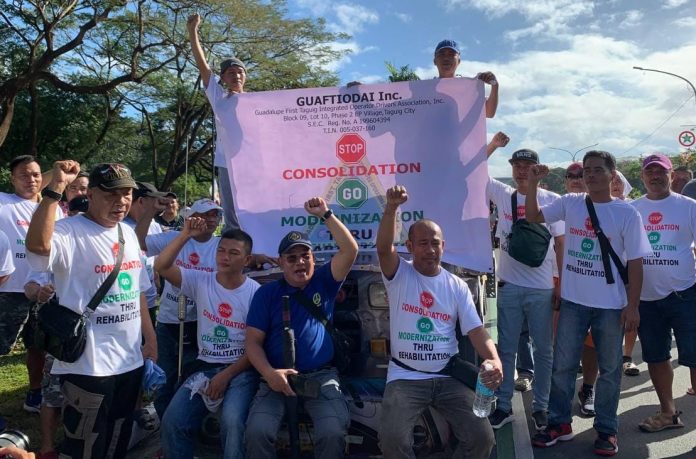Bongbong Marcos Jr’s refusal to extend the deadline for franchise consolidation reveals how callous his administration is to ordinary Filipinos – the livelihoods of tens of thousands of public utility vehicle (PUV) drivers and operators will be disrupted and millions of people will have an even harder time commuting. The abrupt banning of so many jeepneys portends forced modernization and drastic fare hikes. Millions of Filipinos will be affected and not just a “minority,” contrary to Marcos Jr’s claims.
Under the mandatory franchise consolidation, instead of individual franchises, only one cooperative or corporation will be issued a franchise to ply a single route. Traditional jeepney and utility van express (UVE) vehicles not consolidated into a cooperative or corporation will no longer be allowed to operate. This means hundreds of thousands of drivers and operators nationwide and their families will lose their livelihoods.
The Department of Transportation (DOTr) estimates that 71,395 public utility jeepneys (PUJ) and UVE units nationwide have not been consolidated, consisting of 64,639 PUJs (43% of total PUJs) and 6,756 UVE units (35% of UVE units). This could mean around 140,000 drivers and operators who cannot afford to consolidate or, with their families, over half a million Filipinos economically displaced in the new year. This does not even include thousands of drivers and operators already consolidated in cooperatives who are in debt and struggling to make a living.
With only 57% of PUJs and 65% of UVEs nationwide consolidated, millions of commuters will have to deal with longer lines, longer waiting times, and more crowded rides from the start of the new year. Commuting time is also not guaranteed to be shorter, as the government has been inefficient in planning the new routes. The mass transport crisis will worsen due to the limited number of consolidated PUVs and the lack of a clear government program to deal with the huge gap after the forced consolidation deadline.
The consolidation rate in the National Capital Region, which has the biggest and most concentrated population in the country, is even lower than the national average at only 26% of PUJs (10,973) and 34% of UVEs (2,497) consolidated. There are an estimated nine million jeepney passengers daily in Metro Manila alone and the lack of consolidated PUJs will leave many of them stranded.
The Marcos Jr administration is indifferent to the plight of PUV drivers, operators, and commuters and instead is more concerned with private sector interests that will benefit the most from the forced consolidation. The worsening privatization and corporatization threaten to raise jeepney fares by 300-400% over the next few years.
As it is, Manny Pangilinan-backed modern PUJ operator Byahe will be investing more than Php1.5 billion on more than 500 e-vehicles to ply 35 routes mostly in Metro Manila and Cebu by 2027. The Aranetas through their Beep Jeeps and the Villars through their MetroExpress Connect also have investments in modern jeepneys.
As the consolidation deadline fast approaches, it is important to support the impending transport strike, to not only stand with the PUV drivers and operators and their families in the fight for their livelihoods but to also demand a genuinely sustainable and pro-people public mass transport system.









